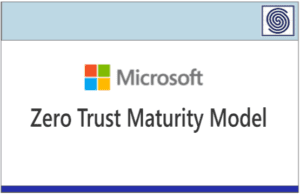Source: www.databreachtoday.com – Author: 1
Critical Infrastructure Security
,
Training & Security Leadership
Build Resiliency by Simulating Real-World Attacks and Gaining Insight Into Threats
CyberEdBoard

As cyberthreats keep evolving, mobile network operators need offensive security to maintain resilience. Traditional security approaches, such as firewalls and encryption, are no longer sufficient on their own. Offensive security is proactive; it mimics the strategies of real attackers to stay ahead of potential threats.
See Also: OnDemand | Integrating Splunk and Panther for Real-Time Alerting and Custom Dashboarding
With offensive security, mobile network operators can identify, patch and fortify their networks against potential threats and ensure the uninterrupted delivery of communication services.
One of the primary advantages of offensive security is its ability to simulate real-world attack scenarios. Ethical hackers, armed with the same tools and techniques as malicious actors, conduct controlled penetration tests on the mobile network’s infrastructure. This gives MNOs valuable insights into the vulnerabilities that cybercriminals can exploit to gain unauthorized access or compromise data.
The simulations are not limited to technical aspects alone; they extend to social engineering techniques and aim to expose potential weaknesses in human interactions within the organization and test every aspect of the MNO’s security posture.
Benefits of Offensive Security
- Reducing the window of vulnerability: As technology evolves rapidly, new vulnerabilities can emerge at any time. MNOs must adopt a proactive stance and consistently test and update their defenses to reduce the window of vulnerability. This will ensure that the network remains resilient, adaptive and capable of withstanding emerging threats.
- Meeting compliance and security standards: The telecommunications industry is subject to stringent regulations and security standards. Offensive security practices help MNOs ensure compliance with industry-specific regulations, which is crucial for avoiding legal consequences, reputational damage and financial losses. By adhering to standards such as the General Data Protection Regulation or industry-specific frameworks, MNOs demonstrate their commitment to data protection and customer privacy.
- Being prepared for incident response: Offensive security prepares MNOs for potential incidents. The insights gained from ethical hacking exercises help them understand their network’s weak points, which helps them in developing and refining incident response plans. In the event of a cyberattack, MNOs can act swiftly and effectively to minimize damage and downtime.
- Enabling collaboration with third-party partners: Mobile networks often rely on third-party vendors for various components, from hardware to software, so offensive security must include third-party partnerships. Regularly assessing the security of these external relationships will help ensure that vulnerabilities do not enter the network through these channels and fortify the overall security posture.
Challenges of Offensive Security
- Balancing ethical considerations: It is crucial to establish clear guidelines and ethical boundaries to ensure that offensive security testing doesn’t inadvertently disrupt services, compromise customer data or violate laws or regulations.
- Navigating privacy and data protection challenges: Given the sensitivity of customer data, offensive security activities must adhere to strict privacy and data protection regulations. MNOs must ensure that customer information remains confidential during testing and that ethical hackers follow guidelines to protect user privacy. This is not only a legal requirement; it is fundamental to maintaining customer trust.
The Cost of Security: Investment vs. Risk
Implementing offensive security measures requires a financial investment, but it is a strategic expenditure rather than a cost. The potential financial, reputational and operational consequences of a security breach far outweigh the resources invested in proactive security measures, and MNOs need to recognize that.
Original Post url: https://www.databreachtoday.com/blogs/on-point-offensive-security-for-mobile-network-operators-p-3551
Category & Tags: –




















































